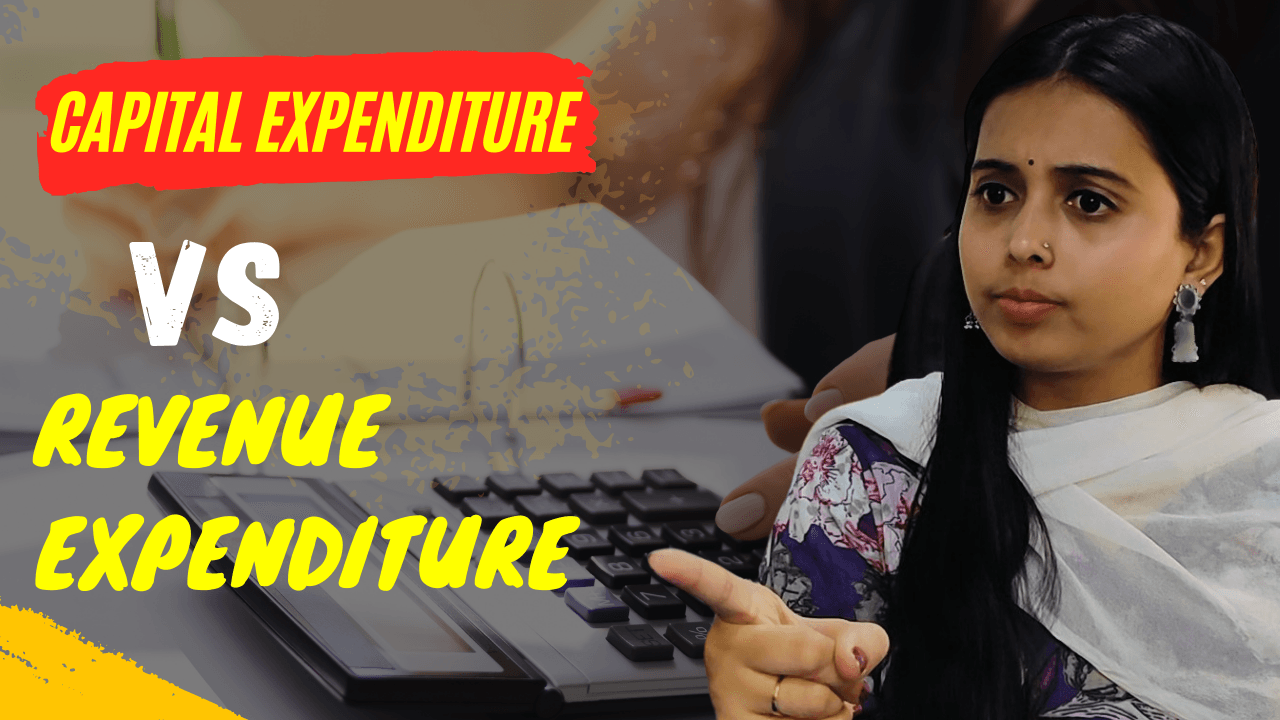Capital Expenditure vs Revenue Expenditure
Capital Expenditure vs Revenue Expenditure Every rupee of tax you pay goes somewhere—some of it builds the future, while some keeps the country running. But how does the government decide where to spend? Understanding the difference between capital expenditure and revenue expenditure helps in decoding how the government prioritizes its budget and how it impacts the economy and your daily life.
What is the Difference Between Capital and Revenue Expenditure?
Government spending is broadly classified into two categories: Capital Expenditure and Revenue Expenditure. While both are essential, they serve distinct purposes.
Capital Expenditure: Building for the Future
Capital expenditure (CapEx) refers to the money spent by the government on acquiring, upgrading, or maintaining physical assets that provide long-term economic benefits. Capital Expenditure vs Revenue Expenditure It is similar to making an investment that pays off in the future.
What It Includes:
- Infrastructure projects like roads, highways, railways, and metro networks.
- Construction of public sector enterprises, schools, hospitals, and government buildings.
- Investments in machinery, defense equipment, and technology.
- Long-term development projects, such as power plants, dams, and airports.
Impact on the Economy:
- Boosts Economic Growth: Capital Expenditure vs Revenue Expenditure Investing in infrastructure creates jobs, increases productivity, and attracts private sector investments.
- Enhances Public Services: Well-developed roads, hospitals, and schools improve the overall quality of life.
- Encourages Private Investment: Better infrastructure leads to a conducive business environment, attracting foreign and domestic investments.

Why It Matters to You:
- Better roads and public transport reduce commuting time and costs.
- Improved healthcare facilities lead to better medical care.
- Investment in renewable energy ensures sustainability and lower electricity costs.
Revenue Expenditure: Keeping the Engine Running
Revenue expenditure (RevEx) covers the day-to-day operational expenses of the government. Unlike capital expenditure, it does not result in the creation of long-term assets.
What It Includes:
- Salaries and pensions of government employees, including teachers, healthcare workers, and police personnel. Capital Expenditure vs Revenue Expenditure
- Subsidies on food, LPG, fertilizers, and fuel to make essentials affordable for citizens.
- Interest payments on government borrowings and loans.
- Maintenance and operational costs for existing infrastructure like roads, bridges, and schools.
Impact on the Economy:
- Ensures Smooth Functioning of Government Services: Capital Expenditure vs Revenue Expenditure Capital Expenditure vs Revenue Expenditure Schools, hospitals, and law enforcement agencies operate efficiently due to revenue expenditure.
- Supports Welfare and Subsidy Programs: Schemes like MGNREGA and PDS (Public Distribution System) help the underprivileged.
- Manages Debt Obligations: Capital Expenditure vs Revenue Expenditure Interest payments ensure the government maintains its creditworthiness.
Why It Matters to You:
- Subsidies lower household expenses, making essential goods affordable.
- Salaries to public servants ensure effective governance and service delivery.
- Debt repayment maintains financial stability, preventing economic crises.
How Are Capital and Revenue Expenditure Connected?
While capital and revenue expenditure serve different purposes, they are interdependent. Building a hospital (capital expenditure) is useless if there are no doctors and nurses (revenue expenditure) to run it. Capital Expenditure vs Revenue Expenditure Similarly, constructing roads is pointless if they are not maintained properly.
Why Should You Care About These in the Budget?
1. Balancing Priorities:
- A government focusing more on capital expenditure indicates a long-term vision for infrastructure and economic growth.
- A higher revenue expenditure suggests the government is prioritizing social welfare and immediate needs.
2. Impact on Taxes:
- Higher revenue expenditure may lead to increased borrowing, which can ultimately result in higher taxes in the future.
- More capital expenditure can drive economic growth, increasing government revenues through better productivity.
3. Your Quality of Life:
- Increased capital expenditure can lead to better infrastructure, improved transportation, and uninterrupted power supply.
- High revenue expenditure ensures essential services, like education, healthcare, and public safety, function smoothly.
What to Watch for in the Budget?
- Increase in Capital Expenditure: Signals focus on long-term economic development and job creation.
- Higher Revenue Expenditure: Could mean increased subsidies and welfare schemes but also potential borrowing concerns.
- Balance Between the Two: A healthy economy requires a mix of both to ensure sustainable growth and welfare.
Final Thoughts
Understanding capital and revenue expenditure gives insight into how the government manages the country’s finances. Whether it’s creating jobs through infrastructure projects or reducing costs through subsidies, these expenditures play a crucial role in shaping economic growth and improving citizens’ daily lives. As the Budget approaches, keep an eye on how the government allocates funds and how it aligns with your interests.
Sources Link – https://shorturl.at/U4Vu0
For More information : https://taxgyany.com/

